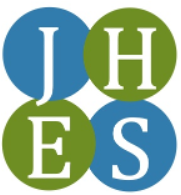ABSTRACT
Local development planning remains a challenge for municipalities and cities in the Philippines due to the lack of personnel with technical planning capacities and poor database management systems amplified by the recent devolution policy and the COVID-19 pandemic. The need to address these gaps has given birth to the Technical Assistance Program on Human Settlements Planning (TAP-HSP) as a public service and extension program of the College of Human Ecology, University of the Philippines Los Baños. TAP-HSP provides capacity building and technical assistance to various planning institutions in the country and aims to make cities and communities safe, resilient, inclusive and sustainable. This paper explores the history, milestones, components and modalities of TAP-HSP, emphasizing its instrumental role in local development planning in the country. TAP-HSP offers different modalities and planning arrangements through its three components: Capacity Development for Planners, Practice of Profession, and Model Community/City for Sustainability and Resilience. Over the years, the demand for TAP-HSP services has remarkably grown that it has played instrumental roles in empowering local planners, molding future planners, bridging planning theories to practice, championing evidence-based, participatory, and inclusive planning, being a key partner for local development, and advocating for liveable cities and communities in local development planning. TAP-HSP’s relevance shall continue progressing with its sustained excellent program ratings and growing network of LGU partners, positioning it as a key player in local and national development and a promoter of inclusive and sustainable communities.
Supplementary Material: TAP-HSP Project Sites (2016-2024)
ABOUT THIS ARTICLE
Authors and Affiliations
Almira Geles L. de Mesa* and Alyanna P. Maneja
Department of Community and Environmental Resource Planning, College of Human Ecology, University of the Philippines Los Baños, College 4031, Laguna, Philippines
*correspondence: ablumbres@up.edu.ph
| Received | Revised | Accepted | Published |
| 29 January 2024 | 24 March 2024 | 27 March 2024 | 1 April 2024 |
Cite this article
de Mesa, A. G. L. & Maneja, A. P. (2024). Instrumental Role of the Technical Assistance Program on Human Settlements Planning (TAP-HSP) in Local Development Planning in the Philippines. Journal of Human Ecology and Sustainability, 2(4), 1. https://doi.org/10.56237/jhes24TAP01
Rights and Permissions
This is an open-access article distributed under the terms and conditions of the Creative Commons Attribution (CC BY) license (https://creativecommons.org/licenses/by-nc-nd/4.0/), which permits unrestricted use, distribution, and reproduction in any medium, provided you give appropriate credit to the original author(s) and the source, provide a link to the Creative Commons license, and indicate if changes were made.
